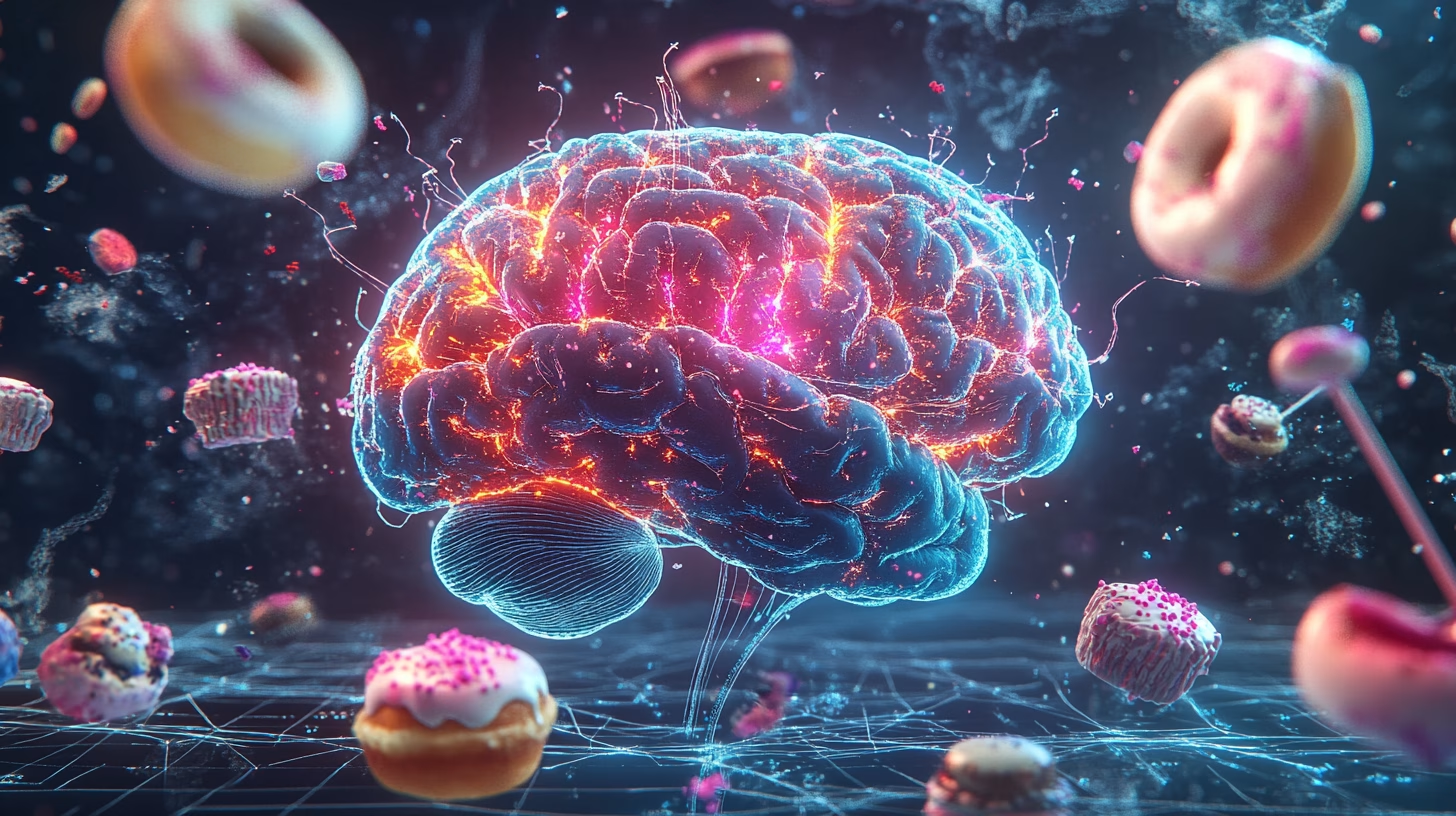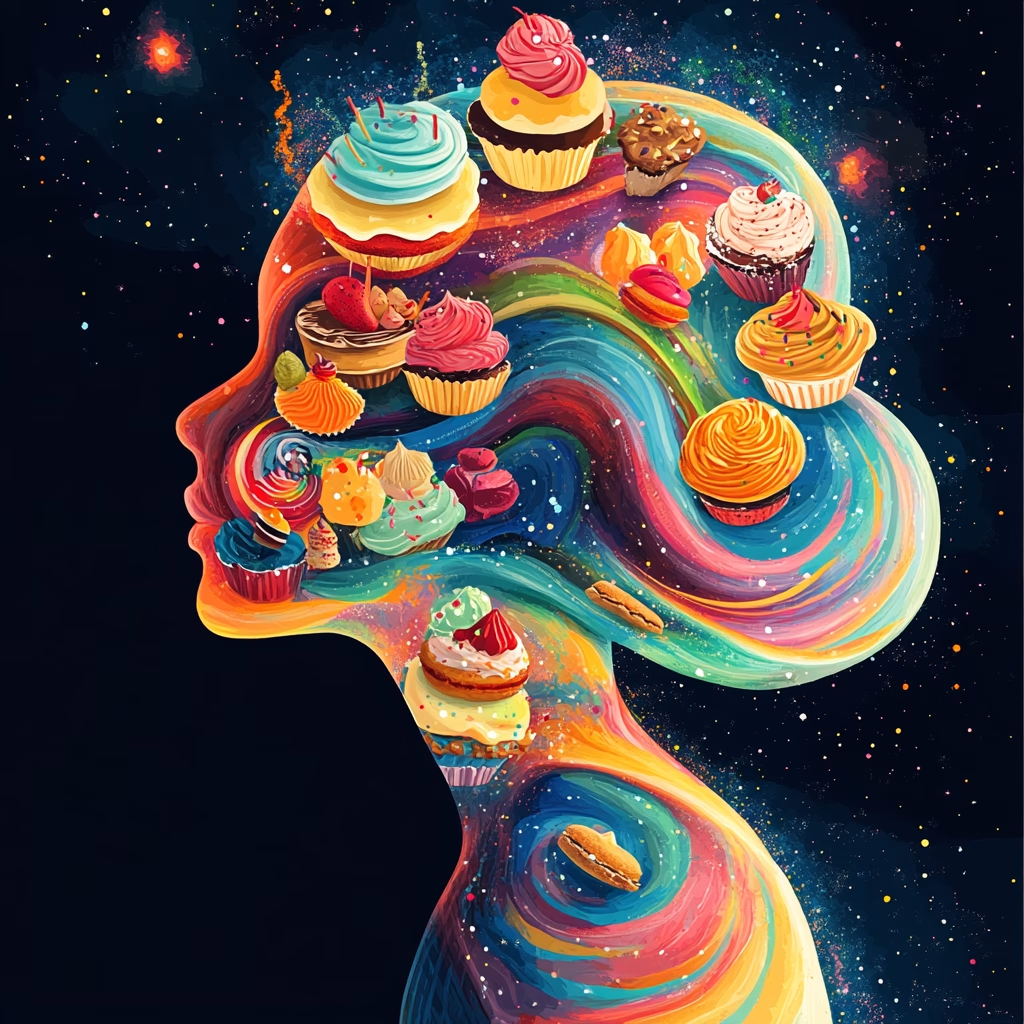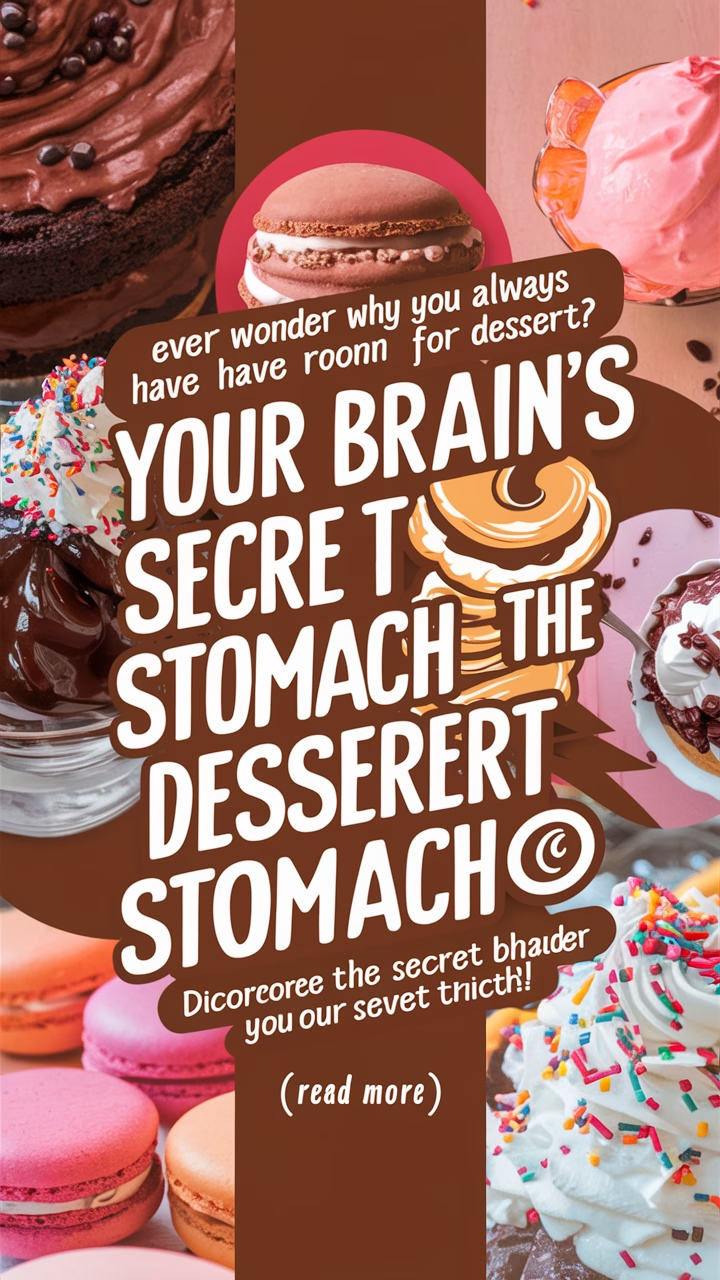The Sweet Science Behind Why You Always Have Room for Dessert
Ever wonder why you can feel stuffed after dinner but still magically find space for a slice of cake or a scoop of ice cream? This phenomenon, often referred to as the “dessert stomach,” isn’t just a quirky habit—it’s deeply rooted in the way our brains are wired. Researchers from the Max Planck Institute for Metabolism Research have uncovered the fascinating brain mechanism behind this behavior, revealing how our brains prioritize sugary treats even when we’re full.
What Happens in Your Brain When You Crave Sugar?
The study focused on a group of neurons in the brain called pro-opiomelanocortin (POMC) neurons. These neurons play a key role in regulating hunger and satiety. When you eat a meal, these neurons signal to your body that you’re full. However, something interesting happens when sugar enters the picture. Exposure to sugar causes these neurons to release ß-endorphins, natural chemicals that trigger a reward response in the brain. This response encourages you to keep eating, even when you’re no longer hungry.
This mechanism is *specifically tied to sugary foods*, which means your brain doesn’t react the same way to savory or protein-rich foods. It’s this unique response that explains why you might push aside your plate of pasta but eagerly reach for a piece of chocolate cake.

Mice, Sugar, and the Brain: What the Study Revealed
To understand this phenomenon, researchers turned to mice, whose brains share many similarities with humans. They observed that when mice were given sugar, their POMC neurons released ß-endorphins, leading to continued consumption of the sweet substance. Interestingly, this response didn’t occur with other types of food, highlighting the unique relationship between sugar and the brain’s reward system.
Brain scans confirmed that similar mechanisms are at play in humans. The study’s findings shed light on why sugary foods are so hard to resist, even when we’re full. It’s not just a matter of willpower—it’s biology.
The Evolutionary Reason Behind Your Sweet Tooth
So why is our brain programmed to crave sugar so intensely? The answer lies in our evolutionary history. In nature, sugar is a rare and valuable source of quick energy. Our ancestors relied on sugary fruits and honey to fuel their bodies during times of scarcity. As a result, our brains developed mechanisms to prioritize and reward sugar consumption. While this was advantageous in the past, it’s become a challenge in today’s world of abundant sugary treats.
Understanding this evolutionary perspective helps explain why modern diets, filled with processed sugars, can feel like an uphill battle. Our brains are still programmed to seek out sugar, even when it’s no longer necessary for survival.
How This Discovery Could Help Tackle Obesity
Beyond explaining the “dessert stomach,” this research has significant implications for addressing obesity. By understanding how POMC neurons and ß-endorphins influence sugar cravings, scientists could develop targeted therapies to curb excessive sugar consumption. One potential strategy involves blocking opioid pathways in the brain, which could reduce the reward response to sugar and help individuals manage their cravings.
Combination therapies that address both the biological and behavioral aspects of eating could also play a role in weight management. This research opens the door to innovative treatments for obesity and related health conditions, offering hope for those struggling with sugar addiction.

Celebrating Your Love for Desserts
While the science behind the “dessert stomach” is fascinating, let’s not forget the joy that desserts bring to our lives. Whether it’s a decadent slice of cheesecake or a plate of warm churros, sweets have a special place in our hearts (and stomachs). If you’re a dessert enthusiast, why not show off your love for all things sweet with our collection of foodie-related shirts & churro-themed apparel? It’s the perfect way to celebrate your passion for desserts!
And if you’ve discovered a local dessert spot that’s too good to keep to yourself, consider supporting small businesses by submitting a listing to our business directory. Let’s spread the love for amazing desserts and the places that create them!
Sharing the Sweetness: Submit Your Favorite Recipe
Do you have a go-to dessert recipe that always steals the show at gatherings? We’d love to hear about it! Share your creation with our community by submitting your recipe here. Whether it’s a family tradition or a brand-new invention, your recipe could inspire fellow dessert lovers around the world.
Final Thoughts on Dessert and the Brain
The discovery of the brain mechanism behind the “dessert stomach” is a reminder of how complex our relationship with food can be. While our brains may be wired to crave sugar, understanding this process empowers us to make informed choices about our diets. From evolutionary advantages to potential treatments for obesity, this research highlights the intricate ways in which our brains influence our eating habits.
So, the next time you find yourself reaching for dessert after a full meal, remember: it’s not just your stomach—it’s your brain cheering you on. Enjoy every bite, and don’t forget to celebrate the sweetness in life!

